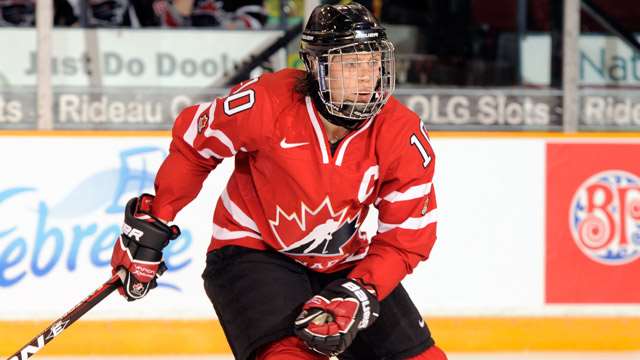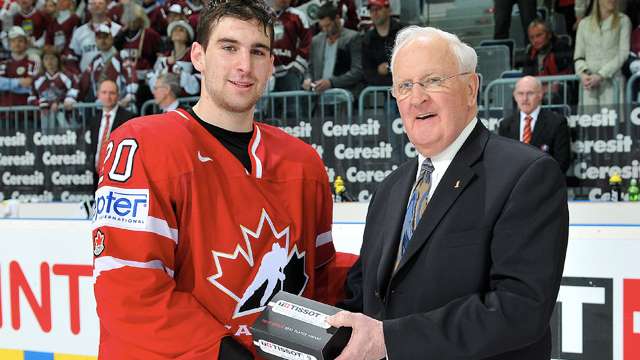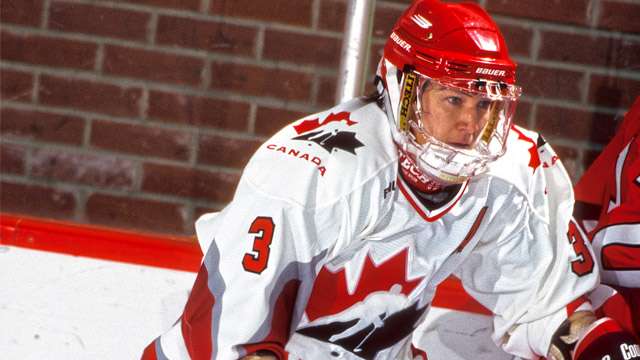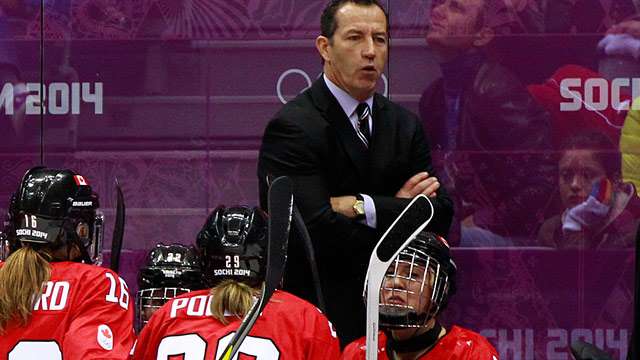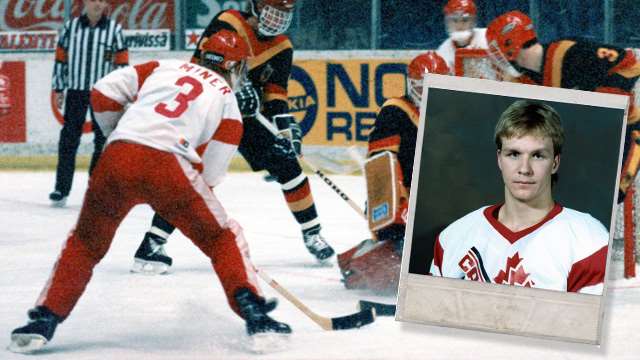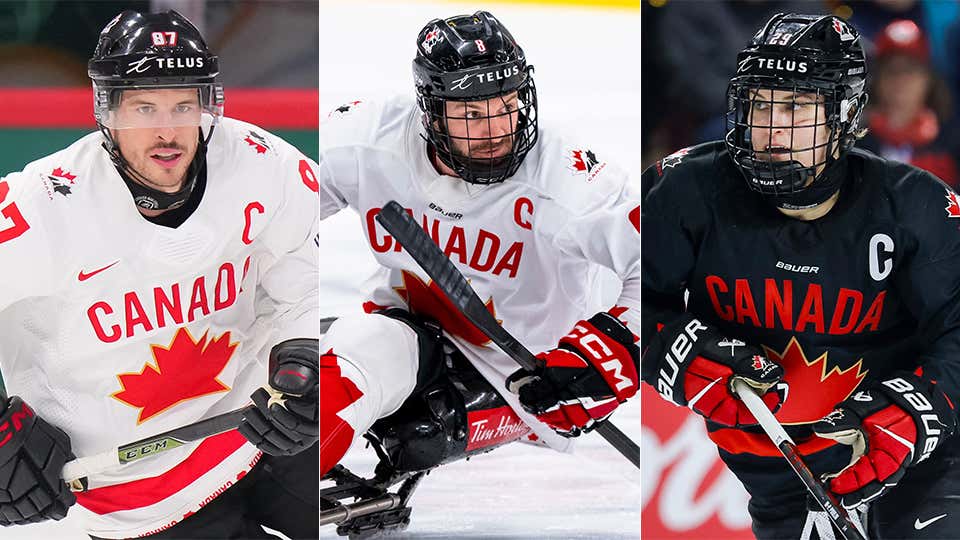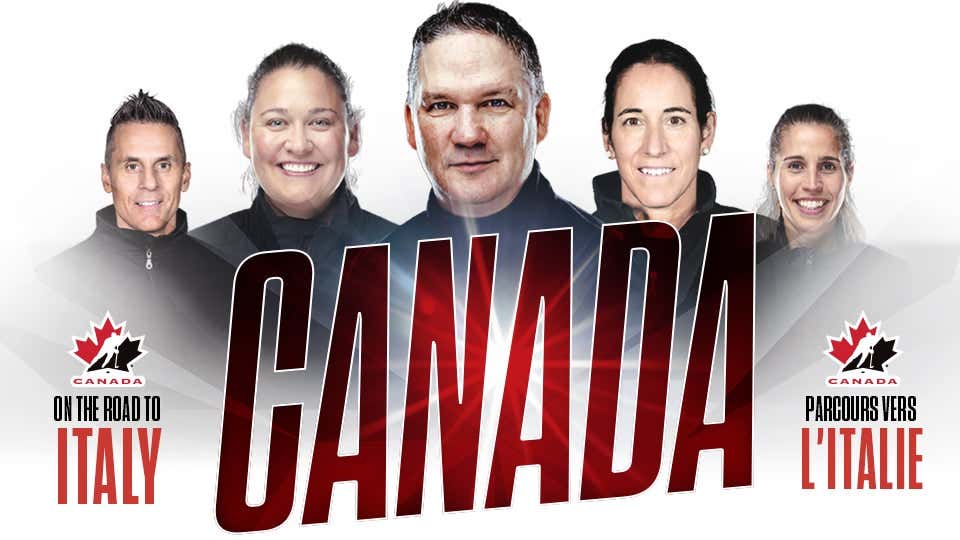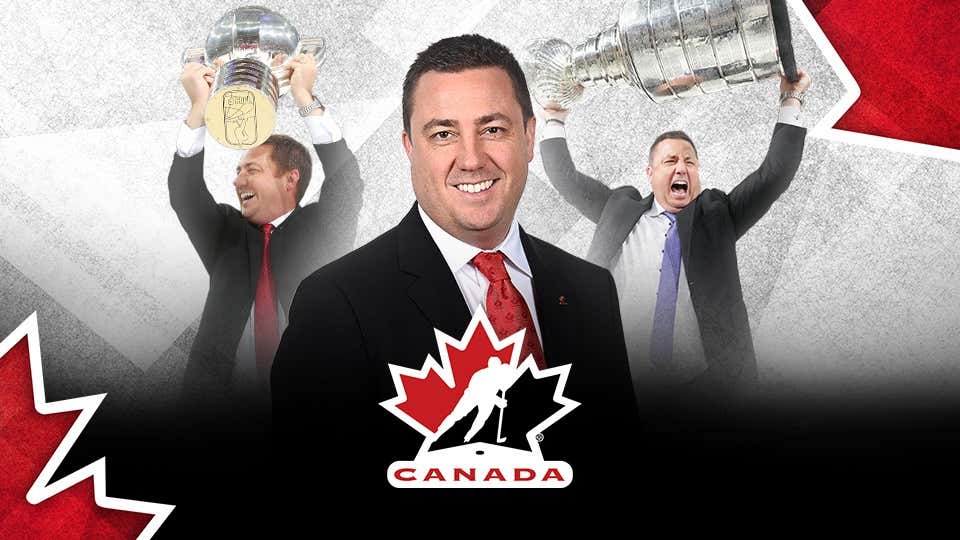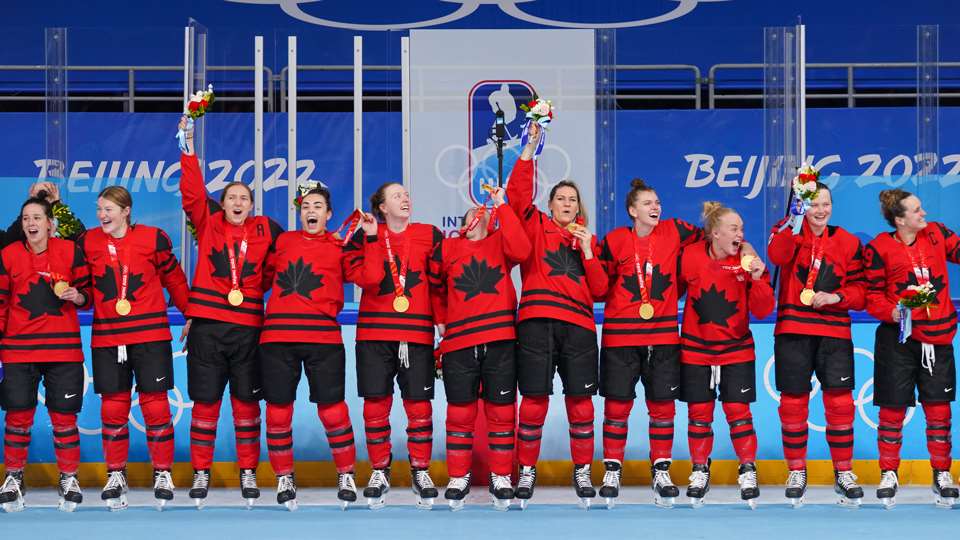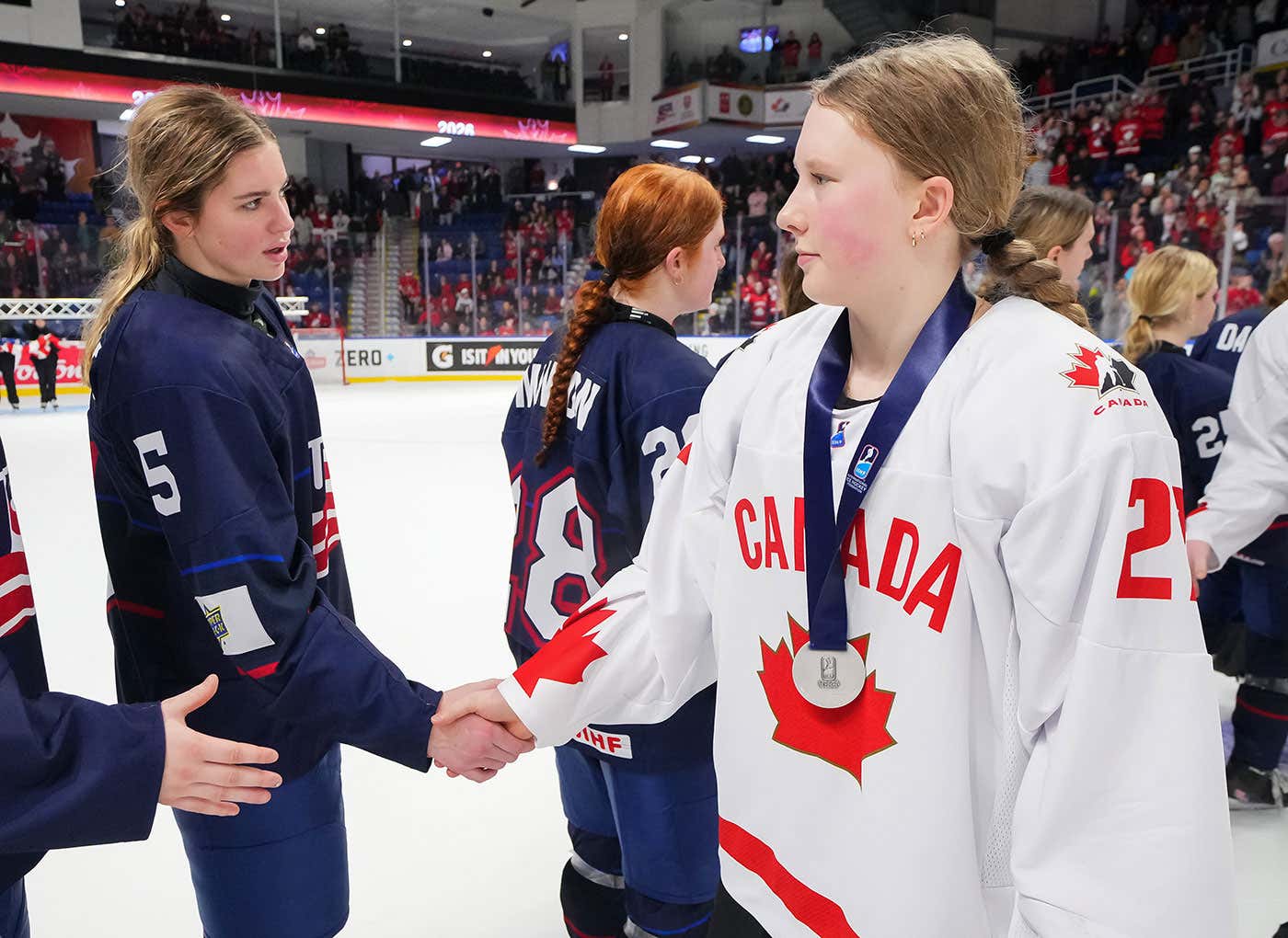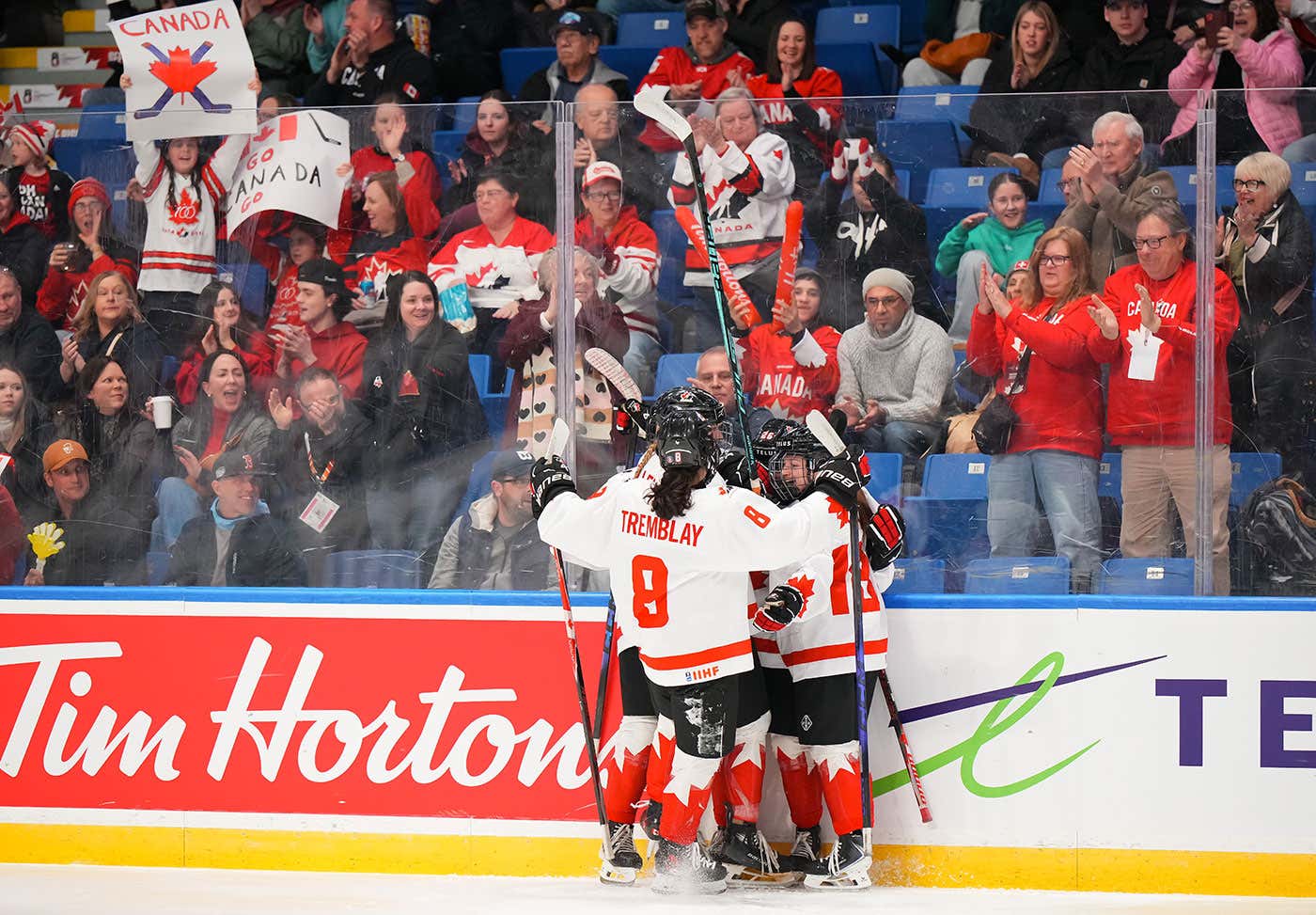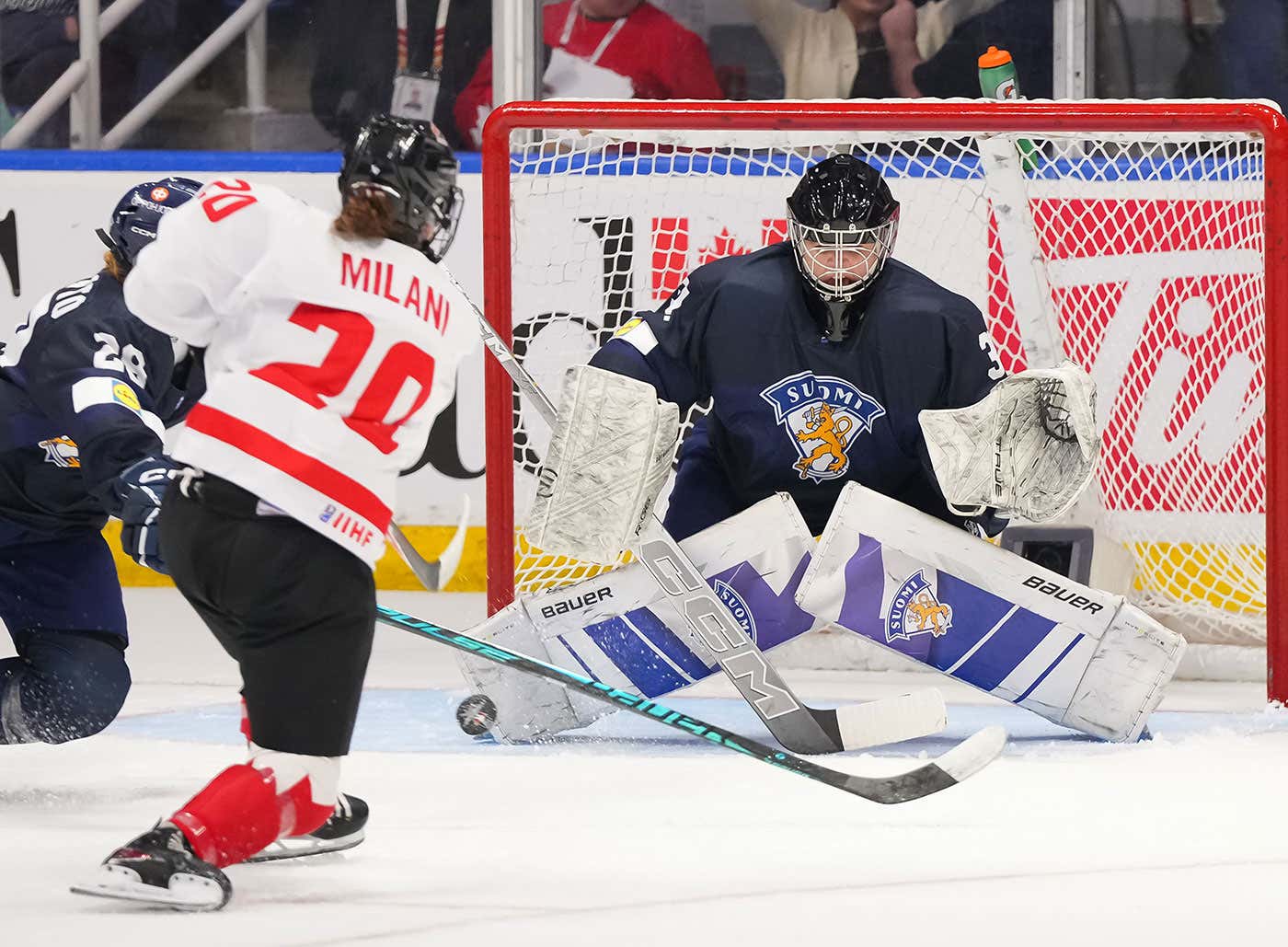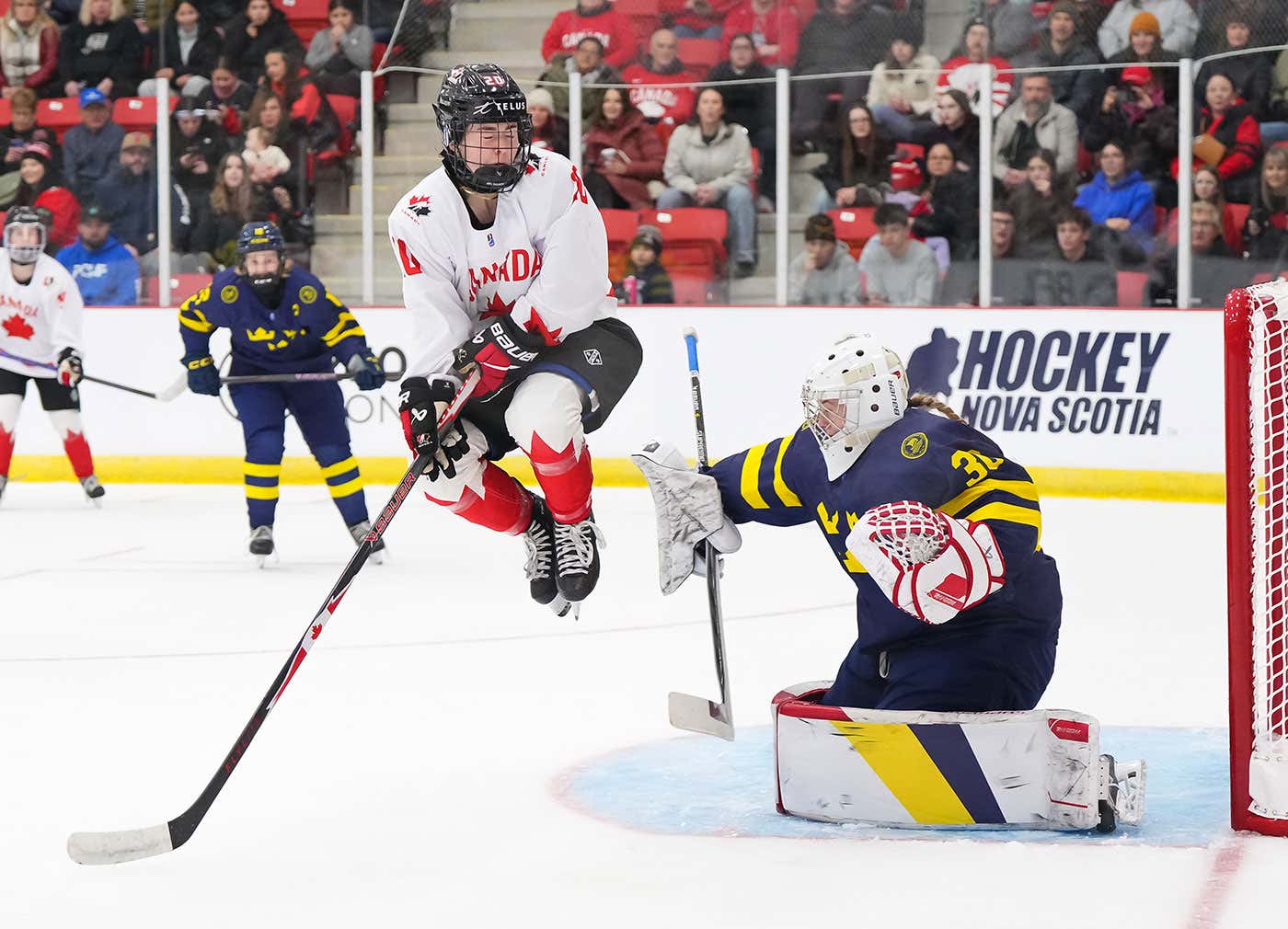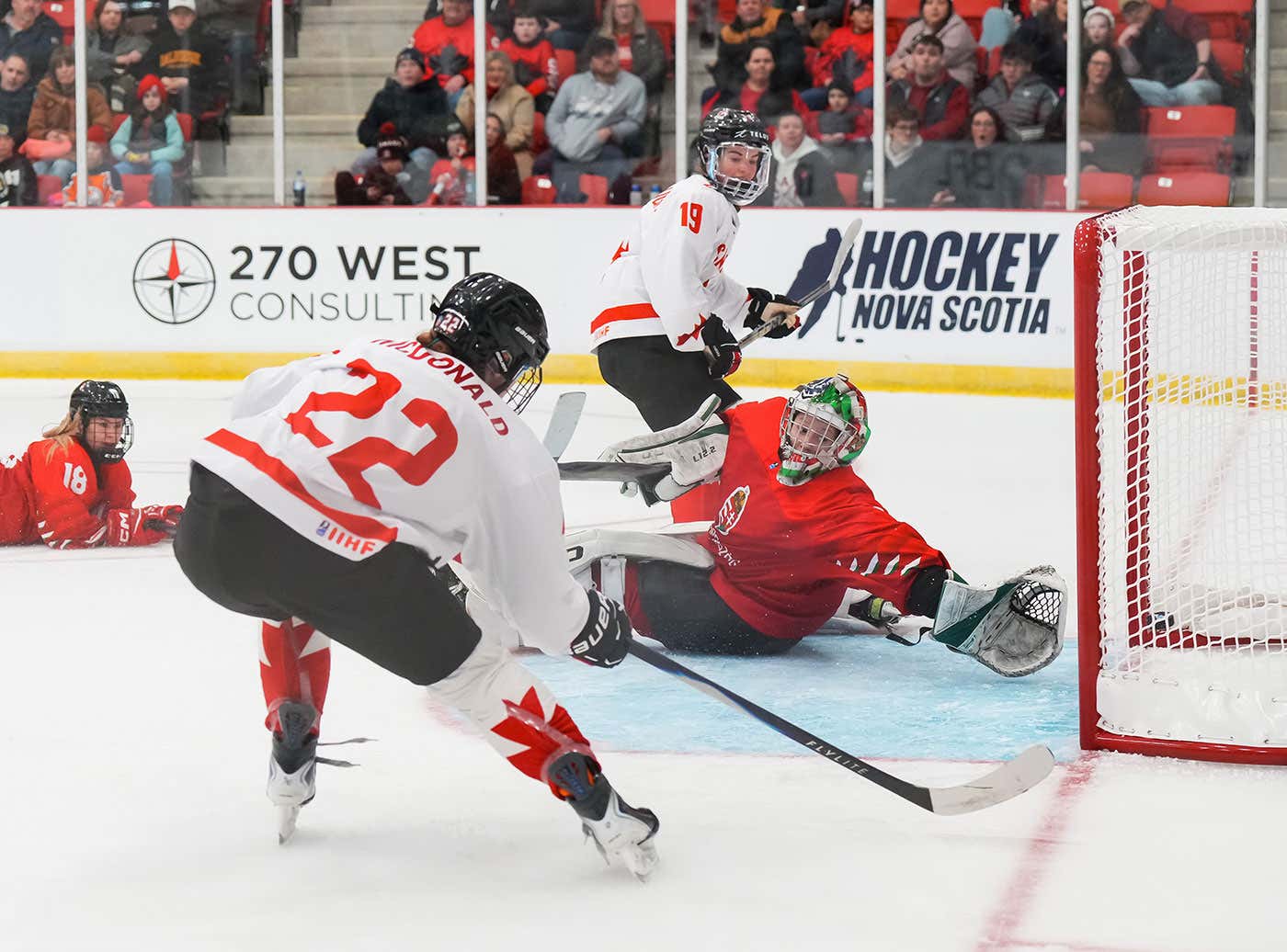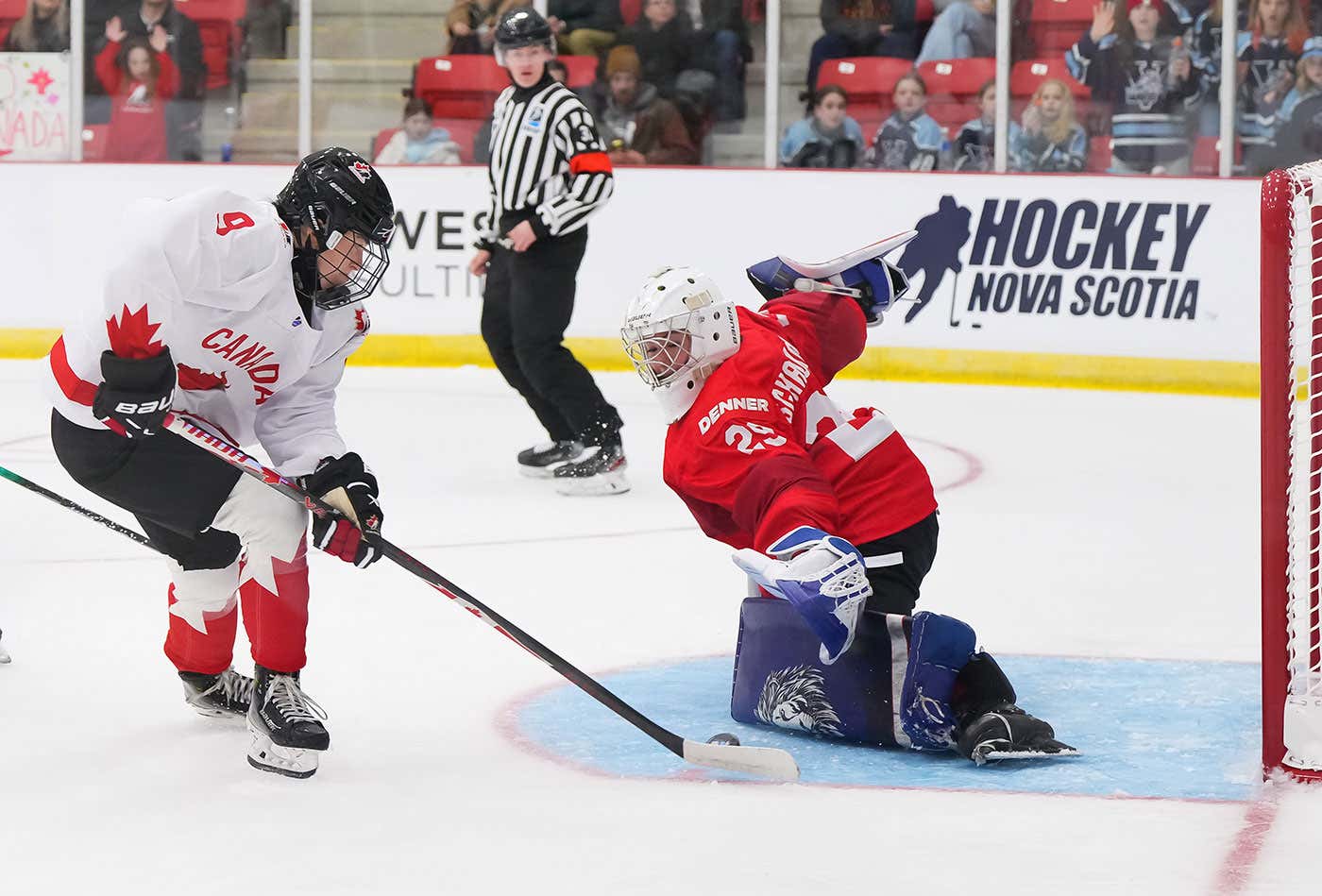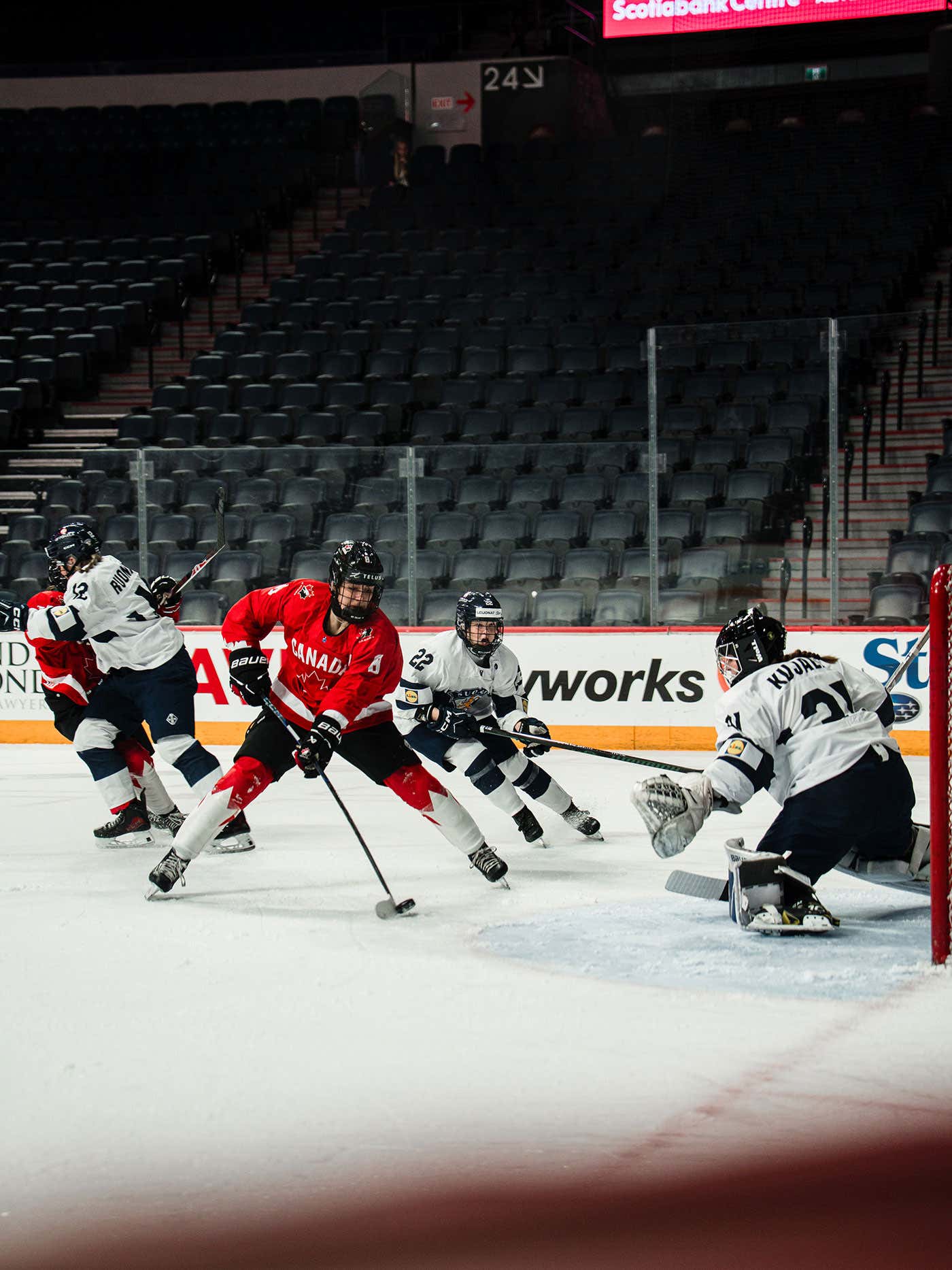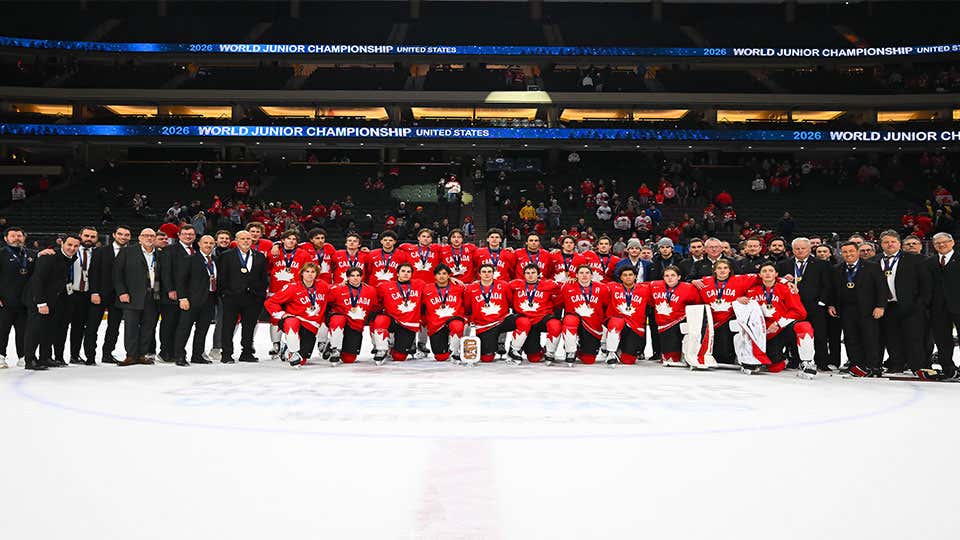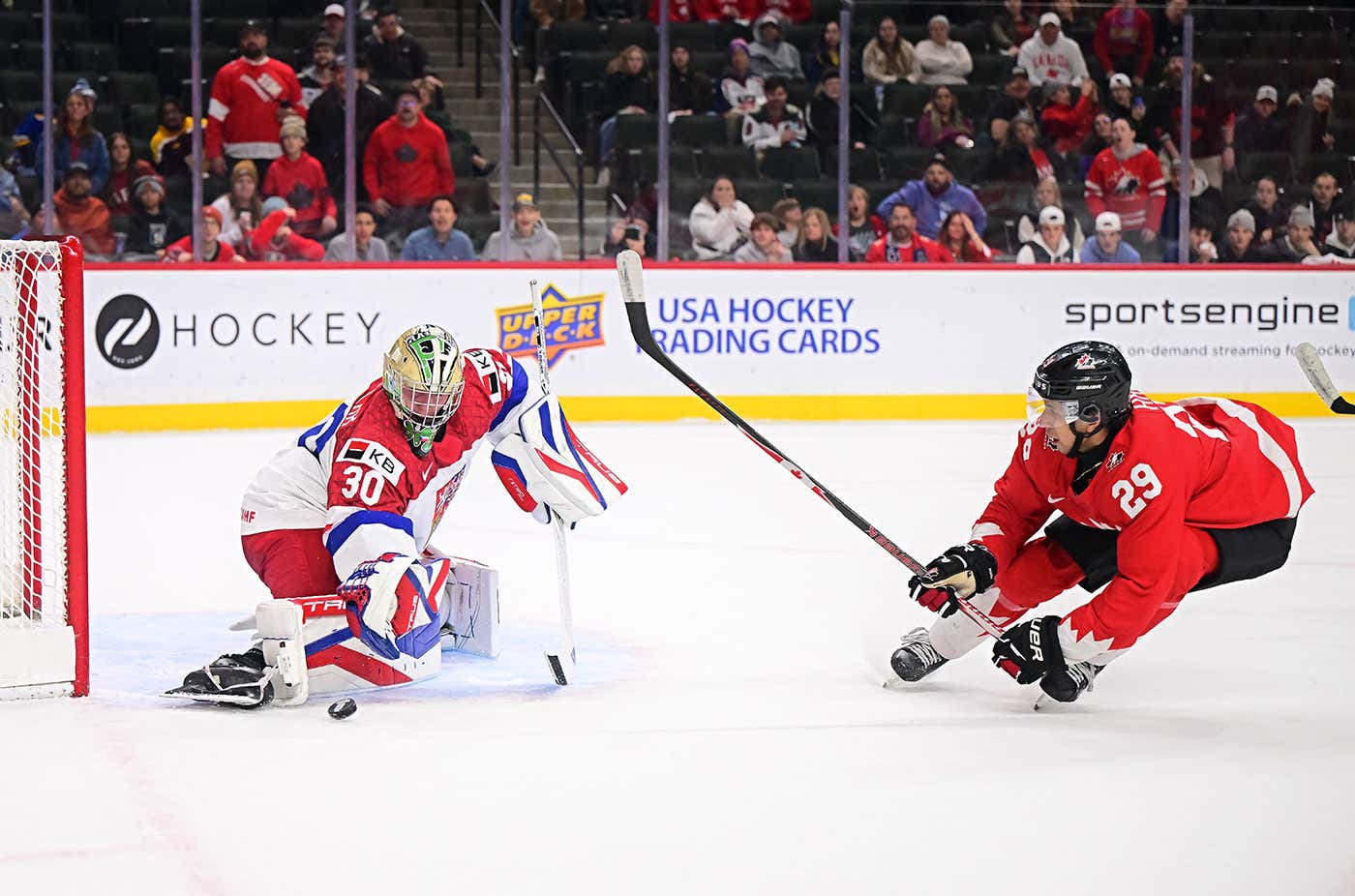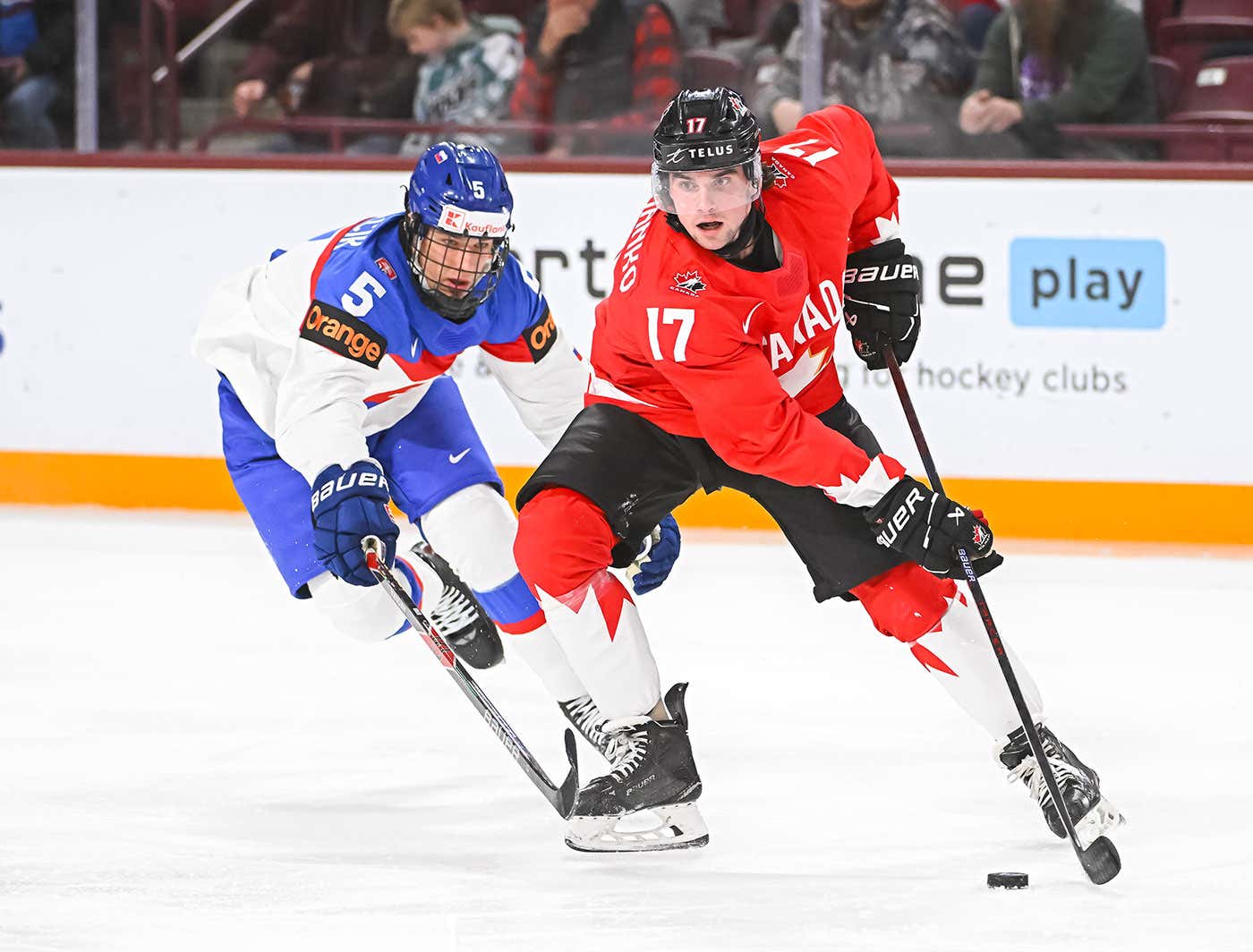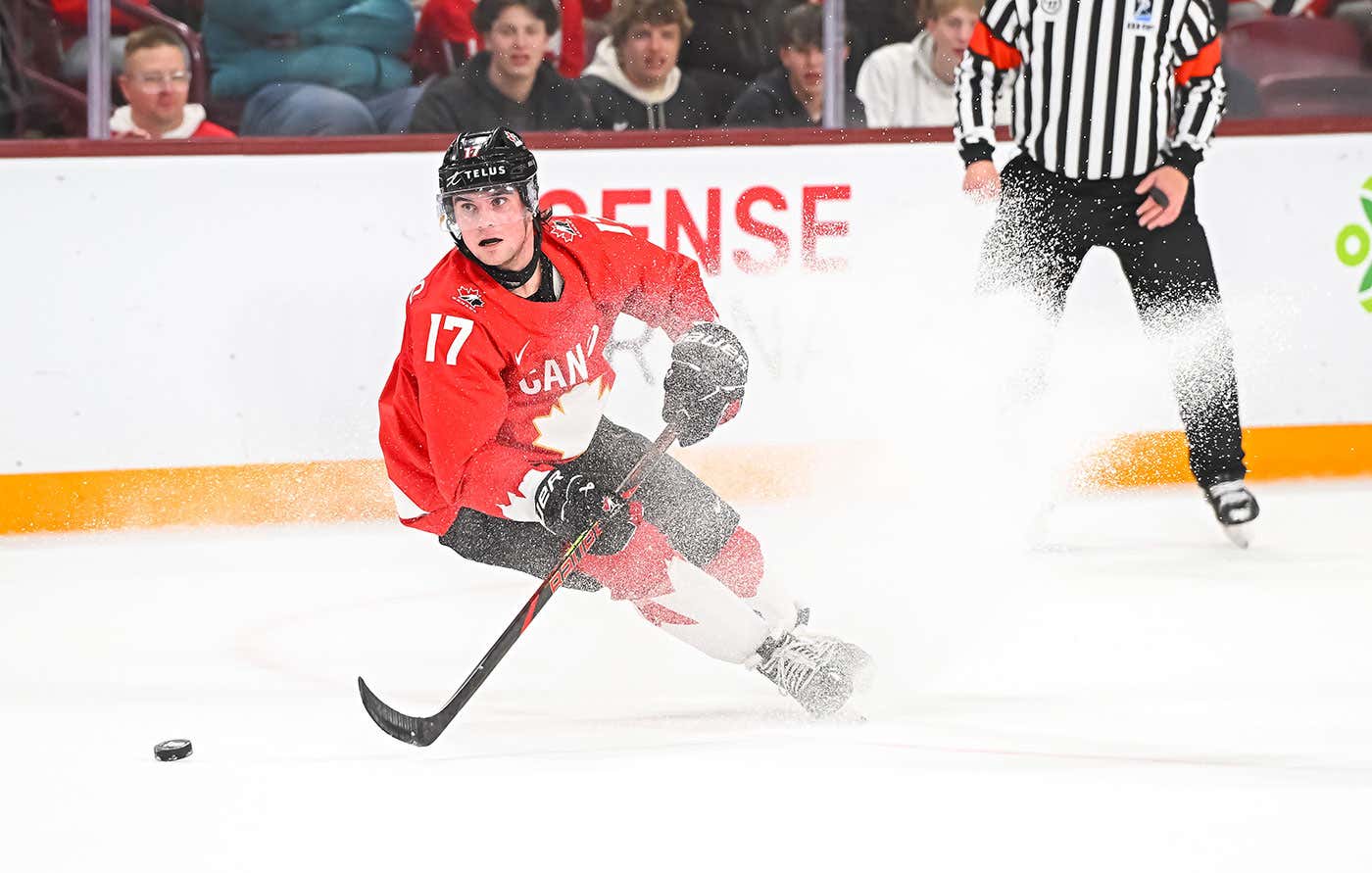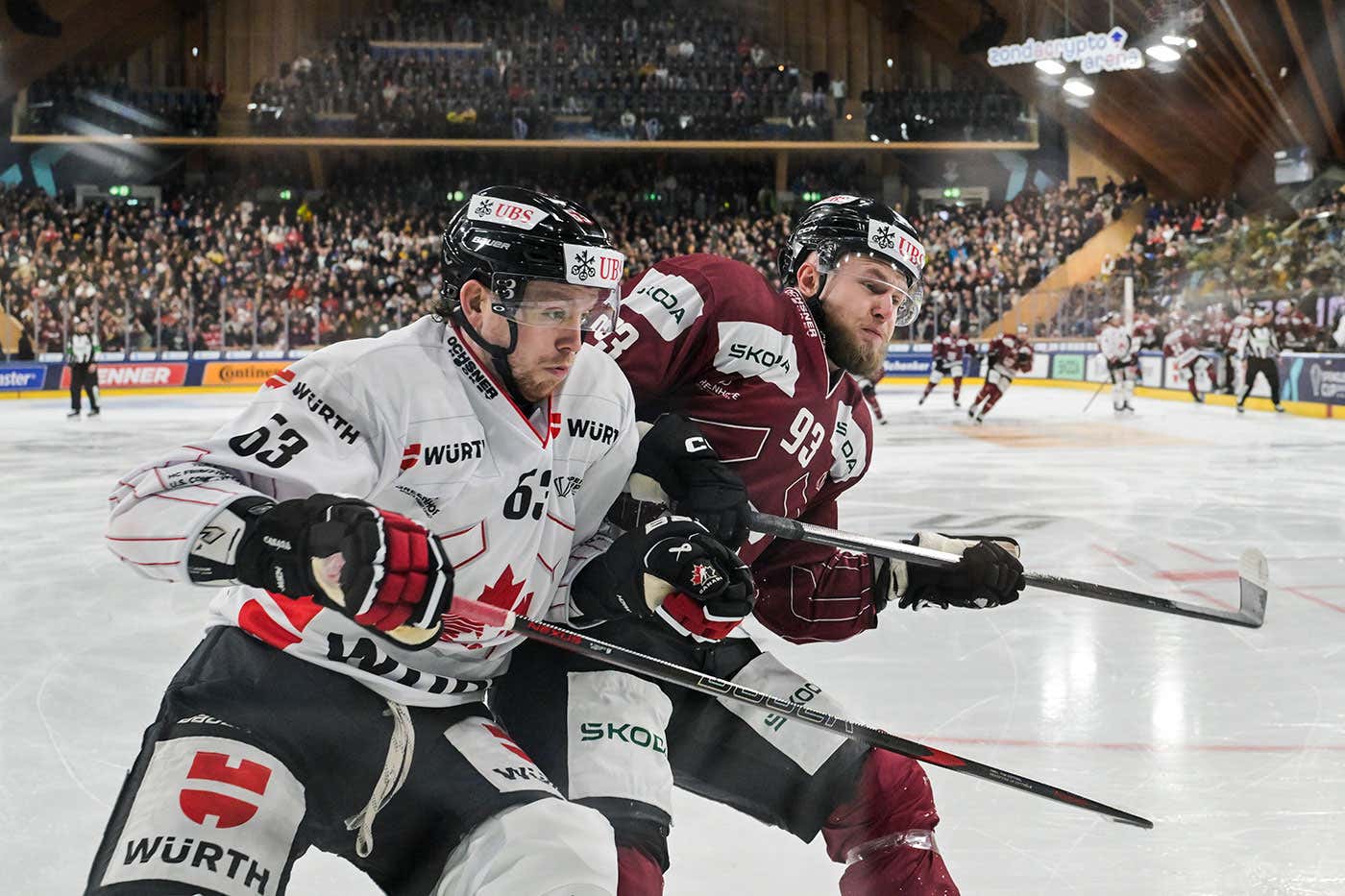
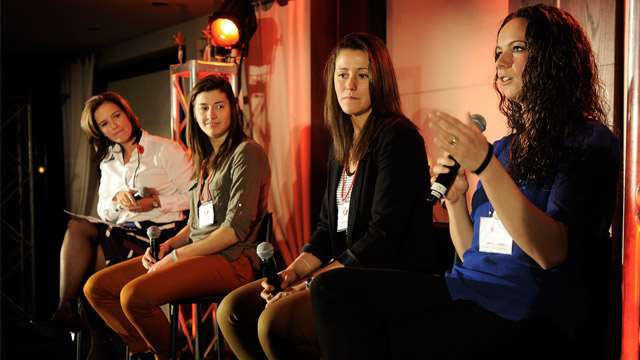
Sips, Sticks and Stilettos
Hockey Canada Foundation helps families join National Women’s Team players on Road to Sochi

The Road to Sochi is long indeed.
In fact, there are 9,183.528 kilometres, or 5,706.38 miles, separating Hockey Canada’s home base of Calgary, Alta., and the site of the upcoming 2014 Olympic Winter Games in southern Russia.
Canada’s National Women’s Team has just turned its final corner on its last stretch to Sochi, travelling overseas to Vienna, Austria, this week for some practice and pre-competition before the Olympic puck drops. Not only is that an extremely intense journey for the players themselves, but it’s also a long trek – that carries a hefty price tag – for family and friends who want to be in the stands at Shayba Arena and the Bolshoy Ice Dome to cheer their loved ones on as they go for gold.
That’s where the Hockey Canada Foundation has “stepped” in to help, with an event called Sips, Sticks and Stilettos, held this past fall to help raise funds for the National Women’s Team family program, which cuts costs so that the top female players in the country can have their top fans supporting them at Sochi 2014.
The Oct. 29 event was held at the Northern Alberta Institute of Technology in Edmonton, Alta., in the midst of one of Team Canada’s many road trips this season. Hockey Canada Foundation board director Doug Goss emceed the special evening, which gave invited guests the chance to mix and mingle with Canada’s National Women’s Team over dinner, and featured both an impressive live auction and a hot stove sessions hosted by two-time Olympic gold medallist Cassie Campbell-Pascall.
“We did this in 2009 as well, just leading into Vancouver, and the idea then, as it is now, was to provide support for the women’s hockey team and their families to attend the Olympics,” said Goss, who is also NAIT’s former board chair, and knew the school’s outstanding culinary students would put together a delicious five-course meal for attendees, which also included Hockey Canada president and CEO Bob Nicholson, Alberta Premier Alison Redford and several other high-profile guests.
“But the stars of the show were the players,” Goss said. “They were all great on stage, Cassie Campbell was terrific and I think everybody left feeling really close to all of the players, and feeling that they were all part of their journey in some way – and that’s a good thing.”
In total, Sips, Sticks and Stilettos raised about $120,000, with 75 per cent of the proceeds going to the National Women’s Team family program, and the other 25 per cent being donated to the Edmonton Girls Hockey Association to help grow the female game at the grassroots level, and inspire Team Canada’s future stars.
“This helps us tremendously, because we get to now bring our families to Russia," Canadian netminder Shannon Szabados of the festivities held in her hometown, and at her former post-secondary school. She said Sips, Sticks and Stilettos is giving her parents the chance to join her in Sochi “without re-mortgaging their house.”
Her parents have done the obscenely early morning drives to the rink, long weekend road trips countless times, and have followed their hockey-loving daughter pretty much everywhere else she’s played, including when she was in goal for the Olympic final at Vancouver 2010. So it seems only fair that they be there to support Szabados and her teammates as they defend that Olympic gold medal. Her husband will make the long trip, too, making it a smaller posse than the one she had in Vancouver, but an extremely important one.
“They were quite excited when I told them events like this help cover their expenses,” Szabados said. “I may not be able to spend a lot of time with my family when they are there, but it means so much just to know they are there supporting us, watching us, and if I need someone to talk to, they are there."
Campbell-Pascall happily helped out at this season’s Sips, Sticks and Stilettos event, since she knows all too well how important it is to have your biggest fans in attendance for your biggest games.
“Especially for Sochi coming up, it’s going to be a pretty expensive trip for the families to be there,” she said. “For some girls, it’s their first Olympics and for some girls, it’ll be their last, and as a former athlete, there’s nothing better to compete, and hopefully be successful, and then have your family right there to share it.”
The best women’s hockey players in the world “don’t make millions and millions of dollars a year,” Campbell-Pascall pointed out, adding “it just helps eliminate the costs … and it’s really important, I know, to the girls to have their parents and friends, and whoever else can, make the trip there.”
Campbell-Pascall said the success of Sips, Sticks and Stilettos shows that “there are a lot of great people out there that are supporting the game.”
“In my day, not many of the girls wore high heels to the rink,” she said with a chuckle of the appropriate yet quirky event name. “But you look at the girls now, and they’re all wearing them and that’s the style – it fits.”
Hockey Canada Foundation executive director Chris Bright described Campbell-Pascall as “natural and engaging” when it comes to garnering support for Canada’s National Women’s Team, adding she “was a great compliment to the evening’s success.”
“The foundation is proud to support these athletes and their families,” Bright said. “Like all Canadians, we wish them all the success on the ice. Off the ice, it is hard not to admire the commitment and dedication they have to pursue gold.”
For more information: |
- <
- >

















